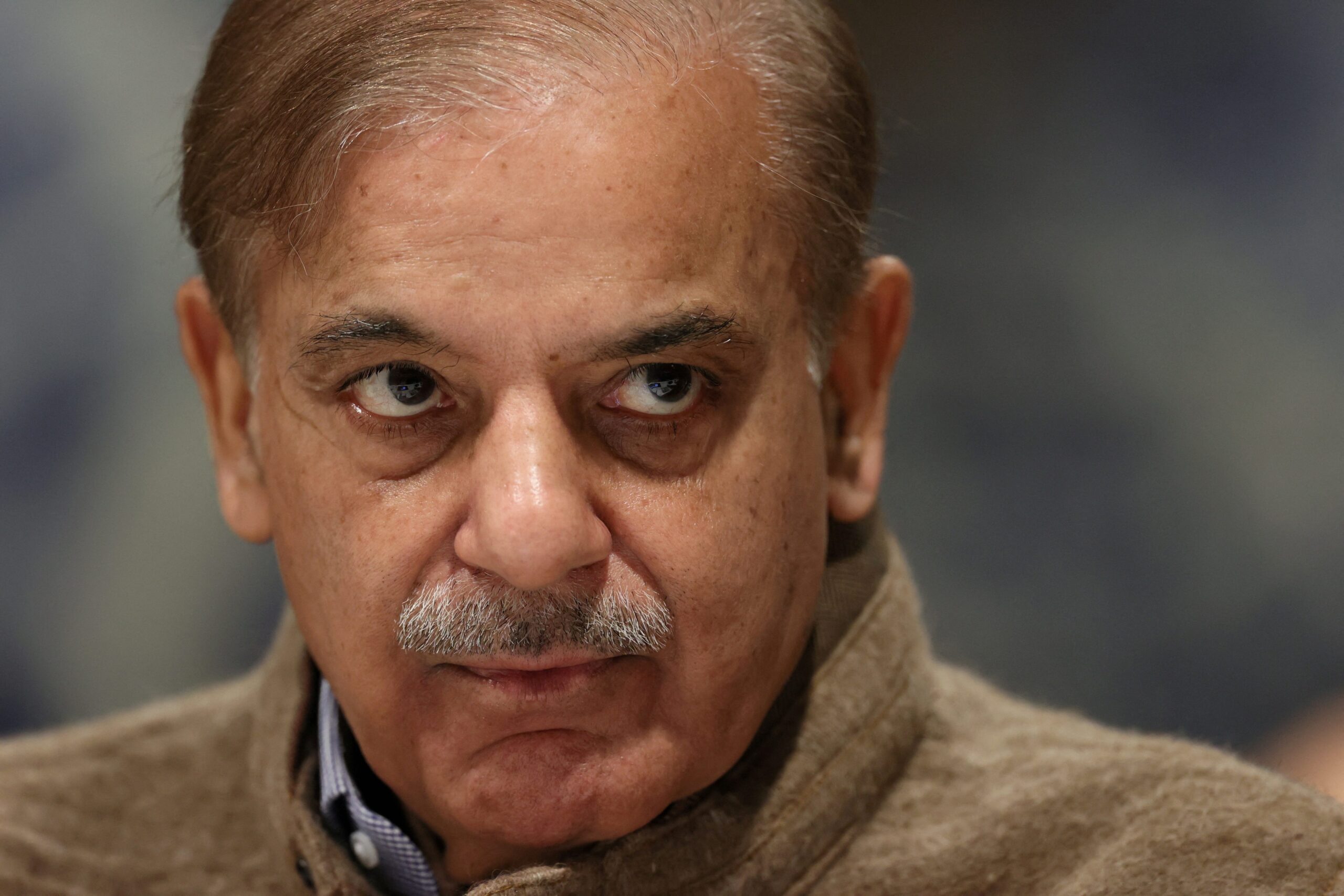SUMMARY
This is AI generated summarization, which may have errors. For context, always refer to the full article.

ISLAMABAD, Pakistan – Pakistan’s newly formed parliament elected Shehbaz Sharif on Sunday, March 3, as prime minister for a second time, three weeks after uncertain national elections caused delays in the formation of a coalition government.
“Shehbaz Sharif is declared to have been elected the prime minister of the Islamic Republic of Pakistan,” National Assembly Speaker Ayaz Sadiq said, after announcing Sharif had secured 201 votes, above the required 169 votes in the house.
He beat Omar Ayub, the candidate backed by jailed former prime minister Imran Khan, who secured 92 votes.
The declaration was met with loud protests from the Sunni Ittehad Council (SIC) party backed by Khan. The lawmakers called for Khan’s release and shouted slogans alleging Sharif had come to power through electoral rigging.
The February 8 election was marred by a mobile internet shutdown, arrests, and violence in its build-up, and the unusually delayed results triggered accusations that the vote was rigged.
Sharif returned to the role he held until August when parliament was dissolved ahead of the elections and a caretaker government took over. No single party won a majority.
Sharif, 72, is the younger brother of three-time Prime Minister Nawaz Sharif, who spearheaded their Pakistan Muslim League-Nawaz (PML-N) party’s election campaign.
Candidates backed by Khan gained the most seats but the PML-N and the Pakistan Peoples Party (PPP) agreed to form a coalition government, which enabled Shehbaz Sharif to be elected as prime minister as his brother stepped aside.
In his previous term, Sharif’s government was able to negotiate a critical International Monetary Fund (IMF) deal but the process was mired in challenges, and measures required by the agreement – which expires in April – have contributed to rising prices and added pressure on poor and middle class households.
The new government will have to immediately start talks with the IMF for the next agreement to shore up the country’s economy whilst also dealing with growing discontent over deepening poverty.
The government will also have to grapple with ongoing challenges from Khan’s supporters. – Rappler.com
Add a comment
How does this make you feel?
There are no comments yet. Add your comment to start the conversation.